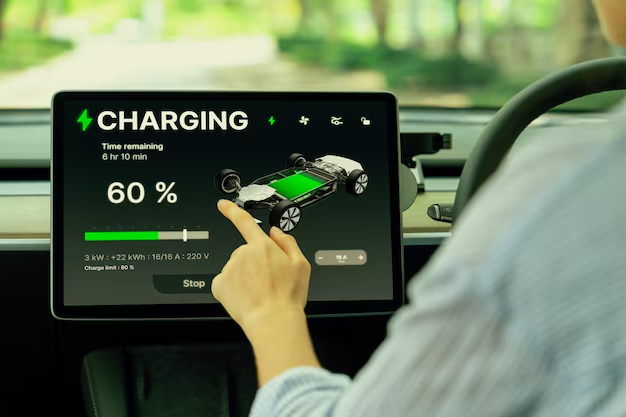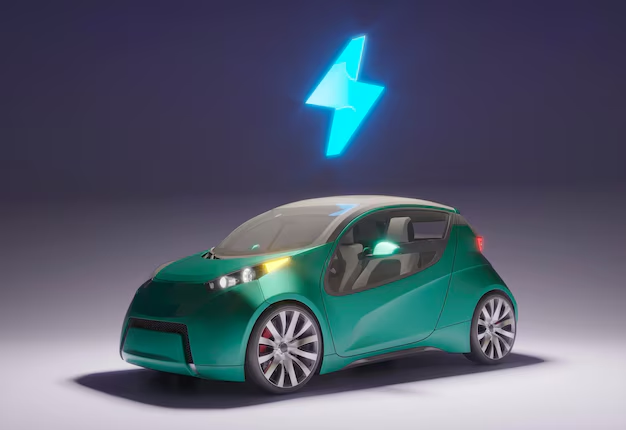Electric vehicles (EVs) are becoming an increasingly vital part of our transition to sustainable energy, and much of their success depends on the advancement of battery technology. As technology evolves, so too does the future of electric mobility. In this article, we will explore the crucial role that battery technology plays in the future of EVs, how innovations are shaping their development, and what the future holds.
The Importance of Battery Technology in Electric Vehicles
Battery technology is the heart of an electric vehicle. It determines how far a car can travel on a single charge, how long it takes to recharge, and how affordable the vehicle can be. As EVs become more mainstream, the demand for better, more efficient, and affordable batteries continues to grow.
Types of Batteries Used in Electric Vehicles
Most electric vehicles today rely on lithium-ion batteries. These are favored because of their energy density, rechargeability, and relatively low cost. However, there are other types of batteries in development, such as solid-state batteries, that could potentially outperform lithium-ion in terms of energy density and charging time.
Advances in Battery Technology
As research and development in battery technology progress, several key innovations are set to improve the performance and efficiency of EVs.
Longer Range
One of the primary challenges for EV adoption is “range anxiety,” or the fear of running out of charge before reaching a destination. Modern lithium-ion batteries have made significant strides in this area, but new technologies are working to improve it even further. The development of batteries with higher energy density allows for greater driving ranges without increasing the size or weight of the battery.
Faster Charging
Another key area of innovation is reducing charging times. Current EV batteries take hours to fully charge, but new technologies, such as fast-charging solid-state batteries, promise to reduce charging times to as little as 15-20 minutes. This advancement could be a game-changer for EV adoption, making electric vehicles more convenient for everyday use.
Improved Longevity
Battery lifespan is another critical factor in the success of electric vehicles. Older battery models degrade over time, losing their capacity to hold charge. However, advances in battery management systems, along with newer materials, are increasing the lifespan of modern EV batteries. Some manufacturers are working on batteries that last longer and maintain a higher capacity over their lifetimes.
Cost Reduction
Cost remains a barrier for many consumers when it comes to purchasing EVs. The cost of batteries makes up a significant portion of the price of an electric car. However, innovations in battery manufacturing, including economies of scale and the use of less expensive materials, are helping to reduce costs. As production ramps up and new technologies emerge, the price of batteries is expected to drop significantly in the coming years.
Future of Battery Technology in Electric Vehicles

Solid-State Batteries
One of the most promising advancements in EV battery technology is the development of solid-state batteries. Unlike traditional lithium-ion batteries, which use liquid electrolytes, solid-state batteries use a solid electrolyte. This design offers several advantages, including higher energy density, faster charging, and improved safety. Many experts believe that solid-state batteries could be the key to unlocking the full potential of electric vehicles.
Recycling and Sustainability
As electric vehicles become more widespread, there will be a growing need for sustainable battery recycling. EV battery materials, such as lithium, cobalt, and nickel, are finite resources, and their extraction can have significant environmental impacts. Companies are focusing on developing more sustainable practices for mining, manufacturing, and recycling battery materials to ensure a long-term solution for EVs.
Conclusion
Battery technology is at the core of the future of electric vehicles. Advances in energy density, charging speeds, longevity, and cost reduction are helping to make EVs more accessible, practical, and affordable. As new technologies, such as solid-state batteries, emerge, the possibilities for the future of electric vehicles are limitless. The continued evolution of battery technology will play a key role in shaping a more sustainable and electric future for transportation.
FAQs
Q. What is the most commonly used battery type in electric vehicles?
Currently, lithium-ion batteries are the most commonly used battery type in electric vehicles due to their high energy density and rechargeability.
Q. How will solid-state batteries impact electric vehicles?
Solid-state batteries promise higher energy density, faster charging, and improved safety compared to current lithium-ion batteries, which could significantly enhance the performance of electric vehicles.
Q. Are electric vehicle batteries recyclable?
Yes, electric vehicle batteries are recyclable. However, improving recycling methods and finding sustainable ways to handle battery waste is crucial for the future of EVs.
Q. Will the cost of electric vehicle batteries go down?
Yes, as technology advances and manufacturing scales up, the cost of electric vehicle batteries is expected to decrease, making EVs more affordable for consumers.


